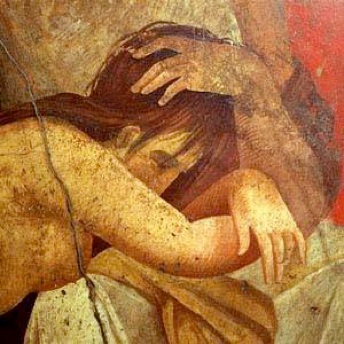What is true theology?

“Theology”, in its original [archaic] Platonic meaning…signified the logos in the speech of the inspired poet that announced deity (Rep 379a. 506).
It did not originally denote a detached rationalised philosophical reflection or an academic discipline .
Thus John the Evangelist is called ‘The Theologian” of the Deity of Jesus Christ.
‘ According to Pannenberg:
“The knowledge of God that is made possible by God, and therefore by revelation, is one of the basic conditions of the concept of theology, and therefore by revelation, is one of the basic conditions of the concept of theology”
(Systematic Theology Volume 1)
This idea of the logos and our hearts being firmly ‘in the grip’ of the Divine Word (Word as Logos, as Jesus Himself in all His Glory, not as text) which then opens up our entire lives to the Spirit is also powerfully expressed in George Fox’s Journal (Fox, the 17th century founder of the Quakers), as in the following:
So he [Christ] it was that opened to me when I was shut up and had not hope nor faith. Christ it was who had enlightened me, that gave me his light to believe in, and gave me hope, which is himself, revealed in me, that gave me his spirit and gave me his grace, which I found sufficient in the deeps and in weakness. Thus in the deepest miseries, and in greatest sorrows, and temptations, that many times beset me, the Lord in his mercy did keep me. As the Light appeared, all appeared that is out of the Light, darkness, death, temptations, the unrighteous, the ungodly, all was manifest and seen in the Light..'
Along somewhat similar lines, William Abraham describes the difference and ‘split’ between the more ancient mystical Eastern Orthodox (Greek and Slavonic) Christianity and our more recent, European, rationalistic ‘intellectualistic’ (Latin “Frankish”) Roman Catholic and Classically Protestant forms of Christianity along similar lines:
On the Process of the Historical and Theological Divergence of
Western from Eastern Christianity.....
………This process (in divergence of West from East) was accompanied in the Western Church by a concomitant alteration in the list of the Fathers to be identified as the great teachers of the Church. Thus Augustine whose own theological speculations about, say, the filoque, were never intended to be anything other than ingenious speculation, became an oracle, displacing the other great fathers of the early Church from their rightful place in the economy of the Church. Brilliant efforts to turn theology into a special kind of science, as represented by Aquinas, became canonical for the [Western/Latin] Church as a whole [but not for the East].
Consequently, the pressure to develop theology as the queen of the sciences in the university fostered the interpretation of the canons as the foundation of truth. Mystical and experiential elements in the acquisition of knowledge of God, which were tacitly crucial to the early teachers of the faith, while not utterly rejected, tended to be held in suspicion or systematically marginalised.
Furthermore, the ultimately mysterious character of the divine life tended to be treated as a challenge to be overcome intellectually by the skill of the human mind working from divine revelation, rather than a fruitful barrier whose outskirts, where they could be engaged at all, could be reached only by a divine transformation of the whole human person bathed in a spirit of complete repentance and humility.
Abraham, W (1998) Canon And Criterion In Christian Theology Oxford
University Press page 116 ff
“It was Christ who gave me Light”


